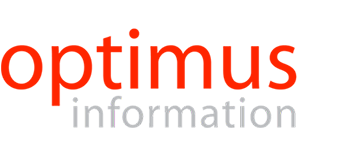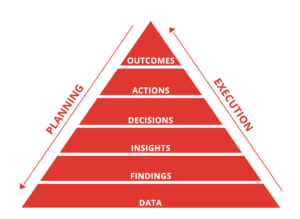Starting a Data Project
It’s exciting to hear ‘Data is the new Oil’ or the ‘new Gold’ or the new ‘something valuable’. What I dread, though, is the day we hear ‘Data is the new fad and a complete waste of money’. I hope that day never comes!
A lot will depend on how businesses approach data projects. Right now, it could go either way. There are many organizations throwing money at data projects to ensure they are not left behind. There are many more who are not even getting started fearing the outcome or the futility of it. If you belong to either camp, I will share a simple process to maximize the return on your data projects.
Where Data Projects fail
Data projects are complex and resource intensive and hence have many failure points. Most failure points are like the failure points of any complex project. Data availability, data quality, team quality, team work, communication, and so on. There is one, though, which is unique to data projects and at the root of all failed projects. It’s what I call the ‘rabbit hole question’. If a data project begins with this, it is likely to fail.
The Rabbit Hole Question
This is the question I most often hear from companies wanting to start data projects. It is some variation of – ‘What can I do with my data?’. I agree that it is the most natural question to ask, however, not the question that is going to set you up for success. It is the dream question for the salesperson who can now engage the solution architects. Who will then build an exciting solution. A solution that is likely to cost a lot of money and take a lot of time. Worse, it may not yield any results. Why? because it’s the ‘rabbit hole question’.
This question propels everyone to start thinking about what all to do with the data. Or, where all to apply the algorithm or the tool. There are many possibilities and hence many potential projects. But there is no way to figure out what we will get at the end of these projects. We will only discover it as we go along. And chances are we may not like what we see in the end, if we see anything at all.
Avoiding the Trap
So, how do we avoid the ‘rabbit hole question’? Where do we start and how do we proceed to maximize our chance of success? The answer is to flip the question – ask “What can my data do for me?”. Better still, use a top down approach of starting with your Business Objectives. The graphic on the right illustrates a more sensible approach to data projects.
The key is to break down the process into two phases – Planning and Execution. Planning requires little time but a lot of thinking but is crucial for success.
It is important during planning to stop thinking about the data you have and what to do it. Instead, start with what the key objectives for your business. Next is to think about the Actions required to achieve those objectives. That leads us to thinking about the kind of decisions we need to take. Then we can ask the question – “What insights do I need to take these decisions?”. These required insights then lead us to the relevant data and findings.
In this process, we may find that we do not have some of the required data. We can then start collecting those. In the meantime, we can then switch to execution with the data we already have. We can use the data and findings to generate relevant insights. These insights then drive the appropriate decisions. These decisions then guide us with the required actions to achieve our objectives.
Data Strategy Workshop
In our experience, the knowledge required for Planning is available in the organization. It usually sits in different silos though. Also, we find that the key stakeholders are usually not aligned.
Hence, we recommend conducting a Data Strategy workshop. Such a workshop aligns all stakeholders around the business objectives. It then allows the group to connect the objectives all the way to the Data they have.
The outcome of the Workshop is an aligned Data & AI Roadmap. We can then jump into execution with the least effort and cost. The initial success then builds confidence in the organization for further projects. It also frees up time of critical resources to contribute to these projects.
Optimus has already conducted Data & AI workshops for various organizations with fantastic results. If you would like your organization to have a clearly defined, cost effective, Data & AI Roadmap, please contact us at rajeev.roy@optimusinfo.com







